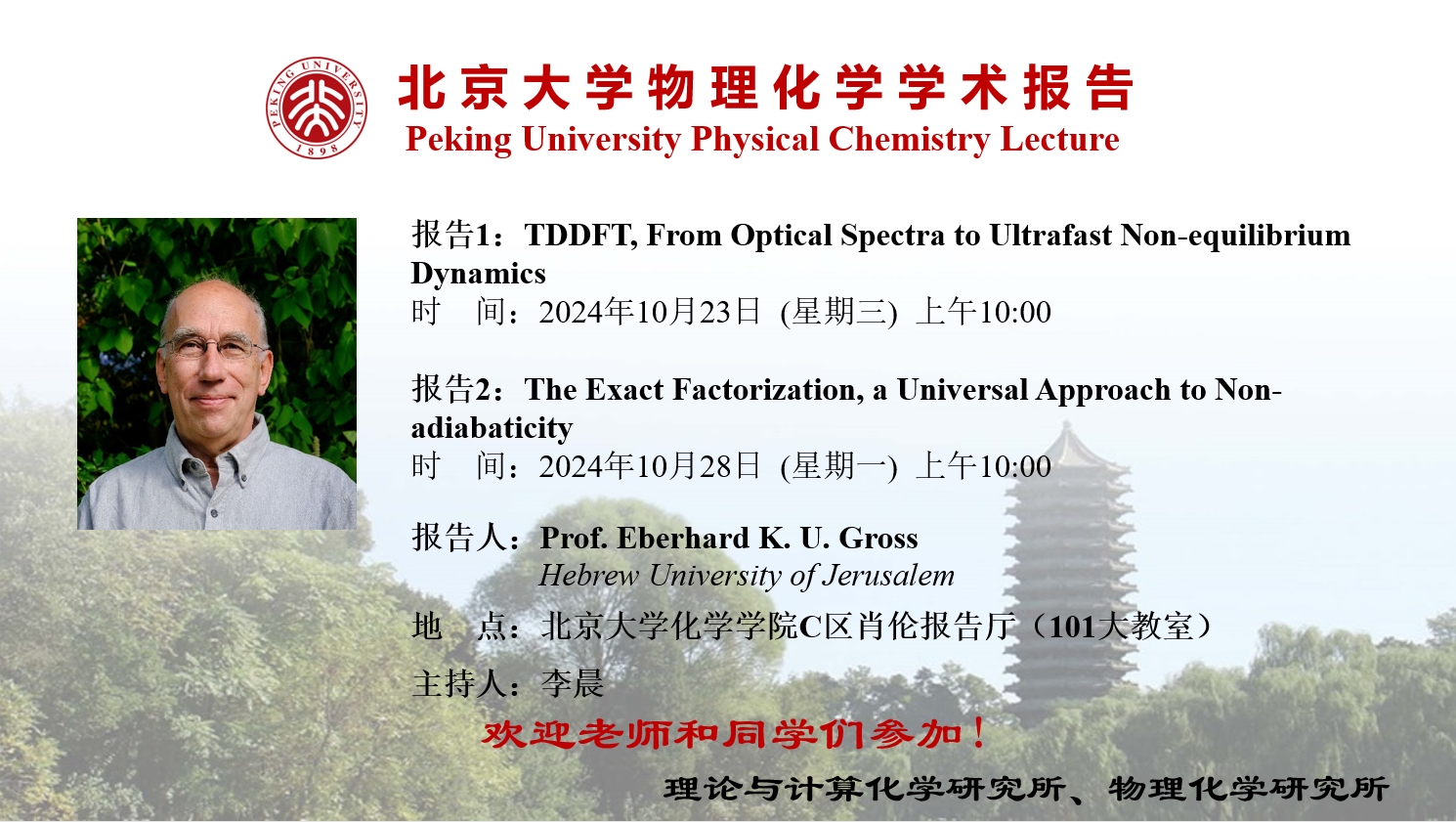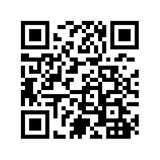
报名问卷(选填,用于帮助院外听众预约入校):

为保证预约成功,请在报告开始前一天提交问卷。
报告摘要
Lecture 1
TDDFT, from optical spectra to ultrafast non-equilibrium dynamics In this lecture, time-dependent density functional theory (TDDFT) will be presented as a versatile and affordable method to deal with the dynamics of electronic systems. Some remarks will be offered on the history and pre-history of the foundation of TDDFT which, ultimately, led to the formulation and proof of the Runge-Gross theorem. Most applications to date have focused on the response to weak probes, thus providing a decent and low-cost description of spectroscopic data. In recent years, real-time TDDFT simulations of strongly driven systems have become increasingly popular to predict the dynamical behavior far from thermal equilibrium. We shall visualize the laser-induced formation and breaking of chemical bonds in real time, and we shall highlight non-steady-state features of the electronic current through nano-scale junctions. With the goal of pushing magnetic storage processes towards ever faster time scales, an optically induced spin transfer (OISTR) from one magnetic sub-lattice to another will be presented. The OISTR effect was first predicted in 2016 by TDDFT calculations and two years later confirmed in several experiments, marking the birth of “atto-magnetism”.
Lecture 2
The exact factorization, a universal approach to non-adiabaticity Some of the most fascinating phenomena in chemistry and physics, such as the process of vision or laser-induced structural phase transitions in solids, involve the coupled motion of electrons and nuclei beyond the adiabatic approximation. To tackle such processes not captured by the dynamics on a single Born-Oppenheimer surface, we deduce an exact factorization of the full electron-nuclear wave function into a purely nuclear part and a many-electron wave function which parametrically depends on the nuclear configuration and which has the meaning of a conditional probability amplitude. The equations of motion of these two wave functions provide an ideal starting point to develop efficient algorithms for the study of non-adiabatic phenomena. Calculations of laser-induced isomerization processes, vibrational circular dichroism, the description of decoherence, as well as calculations of the molecular Berry phase without invoking the Born-Oppenheimer approximation, will demonstrate the power of this new approach. Finally, we shall address the question “which masses vibrate in a molecule”. While in the adiabatic approximation only the bare nuclear masses move on a single potential energy surface, it is intuitively clear that the electrons should move together with the nuclear degrees of freedom. Starting from the exact factorization, we include the electronic motion involved in molecular vibrations in a perturbative way via position-dependent nuclear masses. This method constitutes a general and rigorous framework for describing the mass acquired by the heavy degrees of freedom due to the presence of additional light particles in the system. Thus, it is applicable not only to electrons and nuclei (where the effect is tiny) but also in systems composed of light and heavy nuclei. We illustrate this idea with a model of proton transfer in a hydrogen bond O─H─O where nonadiabatic (vibrational) effects are known to be important.
报告人简介
Eberhard K. U. Gross教授是含时密度泛函理论(TDDFT)的奠基人。他与Erich Runge一起证明了著名的Runge-Gross定理,为TDDFT奠定了数学基础。此外,他是将线性响应TDDFT用于计算分子光谱的先驱,还将实时TDDFT应用于超快电子动力学的计算,在理论上首先预言了磁性材料中光诱导的自旋转移现象,并很快被实验证实。在材料计算方面,他进一步发展了用于激发态计算的系综DFT理论,以及声子驱动超导的第一性原理方法。近年来,他发展了针对原子核-电子体系的严格分解(exact factorization)方法,用于描述化学反应中的非绝热动力学,特别是涉及电子退相干以及分子几何相位效应的化学过程。
报告人履历
获奖经历